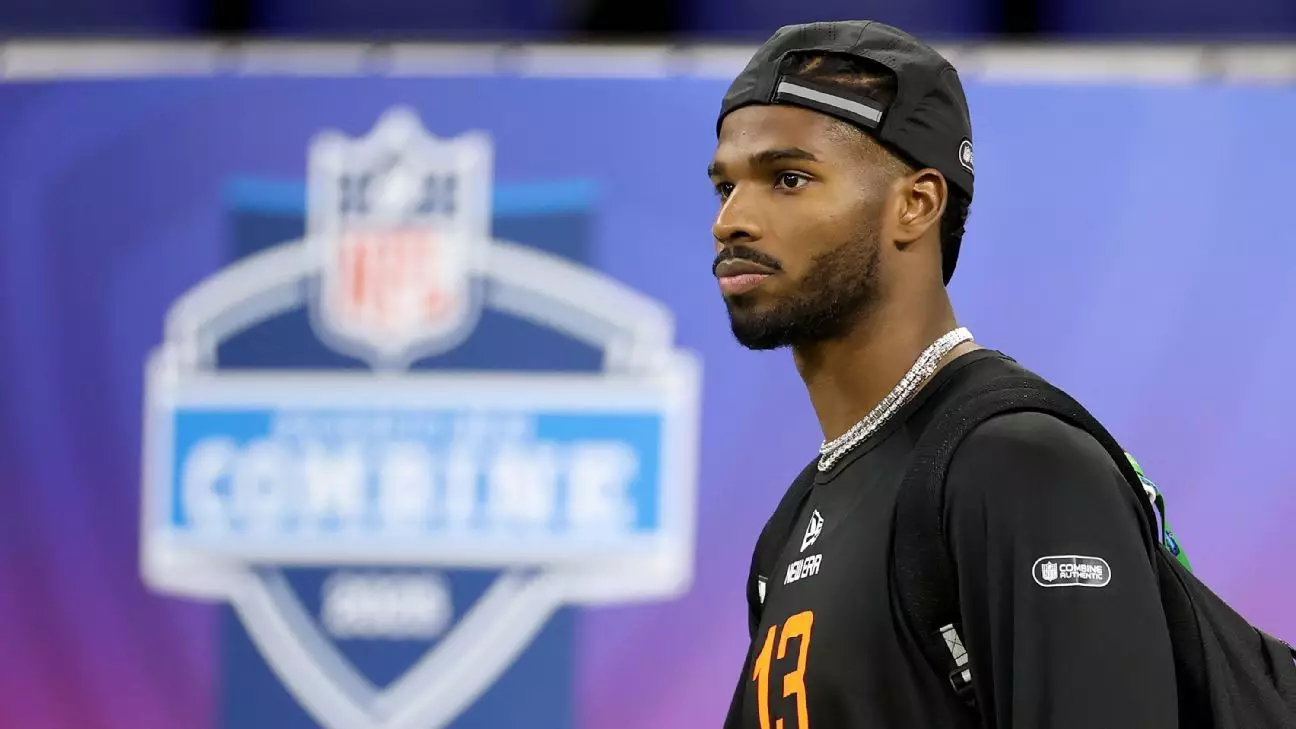In the world of professional sports, particularly during high-stakes events like the NFL Draft, emotions run high. Dreams are realized, futures are forged, and the air is thick with anticipation. This year, however, the celebratory atmosphere surrounding Shedeur Sanders, the talented quarterback destined for a bright future, was unexpectedly clouded by an immature prank. The incident, which involved a prank call from Jax Ulbrich, son of Atlanta Falcons defensive coordinator Jeff Ulbrich, has shone a harsh light on the little-discussed ethical responsibilities associated with the draft process.
The story unfolded when Jax, during a visit to his parents’ home, took the liberty of noting down Sanders’ private phone number from an unlocked iPad. What followed was a prank call that disrupted not just Sanders’ moment of triumph but raised questions about privacy and respect in an age when data is so easily accessible. In a moment that should have been filled with joy and excitement, Sanders found himself bewildered, receiving a call that pretended to be from New Orleans Saints GM Mickey Loomis.
A Prank with Consequences
Once the prank was revealed, it sparked an immediate backlash from fans and observers alike. The wave of disappointment wasn’t just directed at Jax but also reflected a larger concern about decorum in professional sports. While it is easy to label this as the antics of a young man acting foolishly, the repercussions went beyond mere embarrassment. Sanders expressed his feelings in good spirit, noting that it didn’t affect him deeply, but the psychological weight of such invasive antics, particularly at a moment so pivotal in a young athlete’s life, should not be overlooked.
Moreover, the incident prompted the NFL to delve into how Sanders’ information was divulged in the first place. It’s alarming that a personal number could be accessible to anyone within the prioritised professional domain, raising questions regarding data security and privacy protocols, especially for athletes who are often targets of unsolicited attention. The Falcons organization, through their public statements, acknowledged that such actions were utterly unacceptable and committed to reassessing their policies to prevent future breaches.
The Apology and Reactions
Jax Ulbrich has since taken to Instagram to apologize for his actions, describing his behavior as “completely inexcusable.” Acknowledging the ramifications of his prank, he exhibited a level of remorse that suggests a capacity for reflection and growth. However, the sincerity of his apology is put to the test when weighed against the backdrop of a society grappling with issues of respect and acknowledgment for public figures, especially young adults born into the limelight. While it’s easy to dismiss the incident as youthful foolishness, it raises deeper issues about the kind of culture that allows such pranks to be conceived in the first place.
In contrast, Sanders’ response further underscores maturity in the face of immaturity. By choosing not to let the prank affect his excitement, he reinforced the idea that one should not allow negativity to alter their course of joy. With this response, he displayed a character that will undoubtedly serve him well in the highly competitive arena of professional football.
The Double-Edged Sword of Pranks
Interestingly, the phenomenon of prank calls is not isolated. Multiple athletes reported similar experiences during this year’s draft, suggesting a troubling trend rather than a unique occurrence. While harmless pranks can often lead to laughs and bonding experiences, the context within which they occur is paramount. Invading someone’s moment of achievement for the sake of a laugh is not only childish but immature, detracting from a very meaningful experience.
As the NFL moves forward, this incident serves as a reminder of the need for stricter measures concerning athlete privacy and the treatment they should expect from peers and observers alike. The prank, while framed as entertainment, is a reflection of the wider culture surrounding professional sports – one that often teeters precariously between camaraderie and disrespect.
In an age where athletes operate under the scrutinizing eye of public opinion, it is crucial that all involved parties show maturity and respect. The implications of this incident extend far beyond just one prank call; they echo across the broader realm of sports, demanding a greater emphasis on consideration, personal boundaries, and the significance of the moments that teens like Sanders are entitled to enjoy without constant interference.


Leave a Reply